This is a long post and is best viewed online here. To get these updates in your inbox, subscribe to Footnotes and Tangents and turn on notifications for Wolf Crawl 2024. This post is now available to download as a podcast: search for Wolf Crawl wherever you get your podcasts.
Welcome to week 33 of Wolf Crawl
This week, we are reading the final section of ‘Salvage, London, Summer 1536’ This runs from page 116 to 165 in the Fourth Estate paperback edition. It begins: ‘At the Tower, Francis Bryan says,’ It ends: ‘London, thou art the flower of cities all.’
You will find everything you need for this read-along on the main Cromwell trilogy page of my website, including:
Weekly updates, like this one
Online resources about Mantel’s writing and Thomas Cromwell
Writing footnotes and tangents is a full-time job, so I am enormously grateful to paying subscribers who allow me to offer this book guide for free in 2024. As a paid supporter, you can read the bonus episodes on The Haunting of Wolf Hall and start your own discussion threads in the chat area. Alternatively, you can leave a tip to keep me fully caffeinated as I write. Thank you so much for all your support!
This is a long post and may get clipped by your email provider. It is best viewed online here.
Last week’s posts:
This week’s story
He visits Francis Bryan in the Tower. He needs Francis to exert his influence on his in-laws, the Carews. Sir Nicholas must write to Lady Mary to make it clear that neither he nor the old families will help her now. Their support would kill her. He remembers the day in 1531 when the king left Katherine, and he, Cromwell, gave Mary a stool. Her eyes have not left him since.
He meets with Chapuys at dusk in a garden tower at Smithfield. He sends the ambassador to Mary with an offer: obey the king, and you may be restored to the succession. It’s a good job that no one is eavesdropping below.
Together, the Cromwells sit down to ghostwrite Mary’s letter to Henry. Rafe takes it to her to be signed, and once this is done: Lord Cromwell rides out with our lords Norfolk and Suffolk to return Mary to the fold.
At Hunsdon, he interviews Lady Shelton and notes the presence of his spy, Matthew of Wolf Hall. He talks alone with Mary. He offers her a horse and her freedom, and she breaks down in tears. The lords take a look at Eliza Tudor before they leave, and then we are all back on the road to London.
In July, the king is ready to meet his daughter. He, Cromwell, tells his mother-in-law, Mercy Prior, that they will use their new house in Hackney. Mercy wants to know what he will do for Tyndale, awaiting death in an imperial prison. At Hackney, Helen Sadler takes charge of things. Thurston lays on the refreshments.
The reconciliation of father and daughter is carefully arranged. Jane, in white and silver, gives Mary a vast diamond, and Henry sweeps his daughter up in his arms. Mary calls Jane ‘my own lady mother’, but she has re-named Cromwell’s horse Pomegranate, so Katherine is with us still.
The victorious Cromwell and his lost boys retire to the Sadlers’ garden. Here, he explains himself: he tells them of his solemn promise to Katherine to protect her daughter. It is a confession to be kept in this arbour. Their new friend, Chapuys, picks his way across the lawn to congratulate the Lord Privy Seal.
It is midsummer, 1536. We are in Arcadia. At last, or for now, it is over.
This week’s characters
Click on each link for more details and plot summaries for each character:
Thomas Cromwell • Francis Bryan • Martin • Richard • Chapuys • Christophe • Thomas Wriothesley • Gregory • Thomas Howard • Charles Brandon • Tom Truth • Anne Shelton • Matthew • Rafe Sadler • Mary Tudor • Elizabeth Tudor • Lady Bryan • John Shelton • Mercy Prior • Helen Sadler • Thurston • Henry VIII • Margaret Douglas • Jane Seymour • Richard Riche
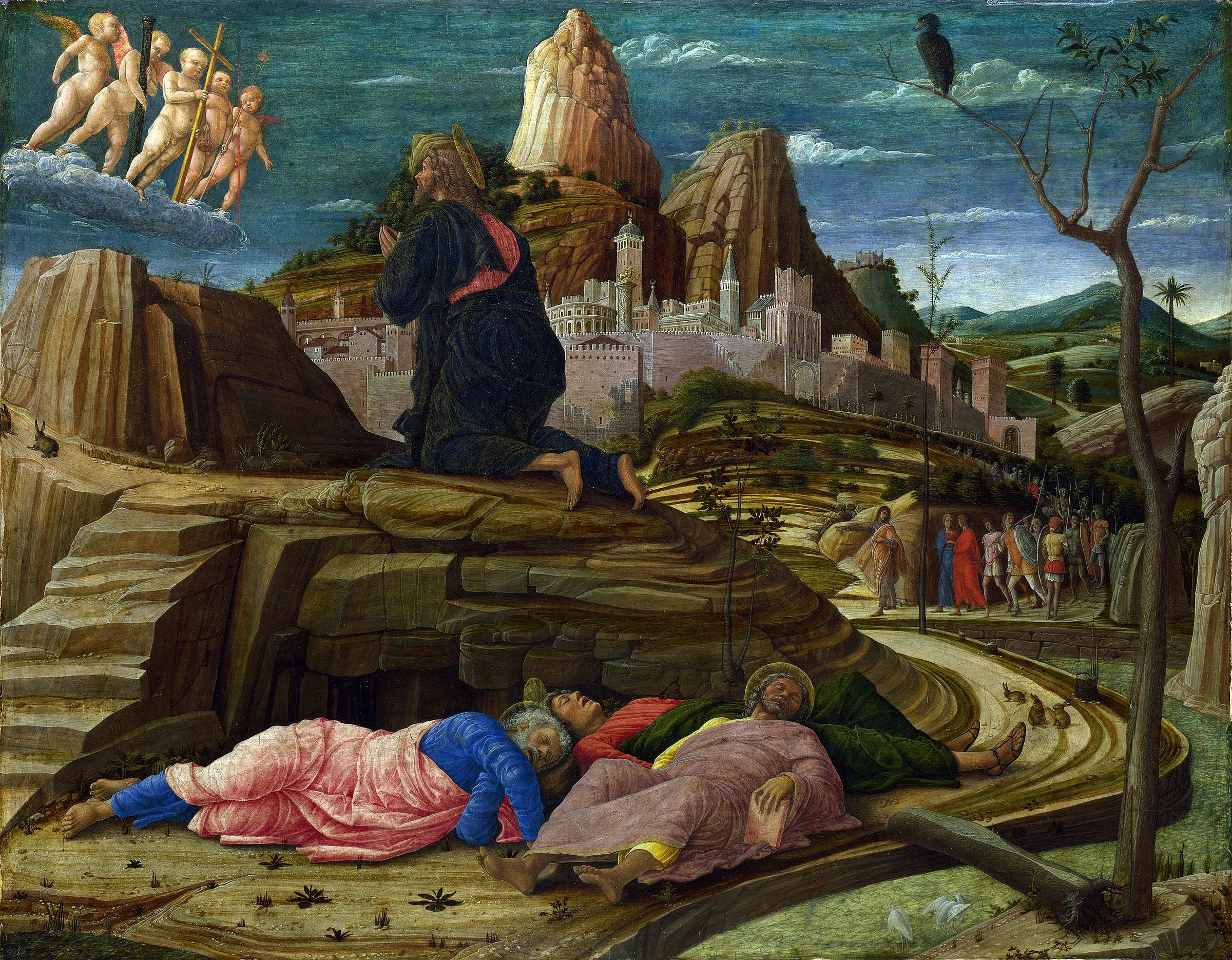
This week’s theme: Paradise regained
‘So, Cremuel, we survive the dies irae. And all your boys are here. I think we may congratulate ourselves… And I tell you, gentlemen, if Cremuel can pacify the Lady Mary, I expect soon to see him descend to Hell and fetch up Satan to shake hands with Gabriel.’
This is, of course, Chapuys speaking in the Sadlers’ garden arbour at Hackney. Dies irae means ‘Day of Wrath’; the phrase is found in the Catholic Mass for the Dead and refers specifically to the Last Judgement when God will separate the saved from the damned. At Hunsdon, Mary piously said she had ‘another Father’ higher than her king. Cromwell reminded her that God’s will is obscure, but ‘the will of your earthly father is plain.’
This week sees Cromwell salvage Mary from the wreckage of her father’s first two marriages. For a dangerous second, it looks like the ‘cannibal king’ is going to gobble up his daughter, weeks after beheading Anne and months after dancing on Katherine’s grave. He, Cromwell, is perilously close to becoming the digestif of this bloody banquet.
But he survives. This week’s reading is bookended by two iconic garden scenes: Chapuys and Cromwell sharing strawberries in a tower at Smithfield and Crum’s lost boys in pastoral twilight at Hackney. I will examine both in more detail in the footnotes.
Gardens are important to Thomas Cromwell. He is always thinking about ways to improve his own gardens and, in Wolf Hall, he asked Hans Holbein to paint him among his beloved fruit trees. ‘The very notion makes me sweat,’ said Hans. ‘Can we keep it simple, yes?’ This is the minister’s hinterland and his refuge from the world. This is also the story of Englishness: We say that an Englishman’s home is his castle, but his garden is where he lets down his guard and finds peace in his soul: dead-heading roses.
But a garden is never just a garden. And this week, Cromwell is not just in Smithfield and Hackney. He is in Gethsemane and Arcadia.
Footnotes
1. The kingdom has not ladders enough
‘You climb so far, my lord,’ says Francis Bryan in the Tower. His words remind us of Cromwell’s earlier thoughts about his Putney childhood: ‘Show him a ladder and he was up it, seeking a longer view.’ But now, ladders alone are insufficient. He boasts, ‘Ladders? I have wings.’
'Then flit into the dusk,' Francis says, 'before they melt.'
He’s reminding Cromwell of Icarus. But in Rafe’s garden, Cromwell thinks of Daedalus, the master craftsman who fashioned the wings that killed his son:
When the wings of Icarus melted, he fell soundless through the air and into the water; he went in with a whisper, and feathers floated on the surface, on the flat and oily sea. Why do we blame Daedalus for the fall, and only remembers his failures? He invented the saw, the hatchet, and the plumbline. He built the Cretan labyrinth.
This passage makes me think of one of my favourite paintings, Landscape with the Fall of Icarus, by Pieter Bruegel the Elder. We see Icarus drowning, unseen and unheard by a world that continues without him. Of this painting, the poet W H Auden wrote:
the ploughman may Have heard the splash, the forsaken cry, But for him it was not an important failure; the sun shone As it had to on the white legs disappearing into the green Water,
For me, Bruegel’s mythological paintings express the intent of historical fiction in general and Hilary Mantel’s writing specifically: great events are placed within the ordinary world from which they came. History’s participants and actors do not have historians or hindsight to tell them where to look.
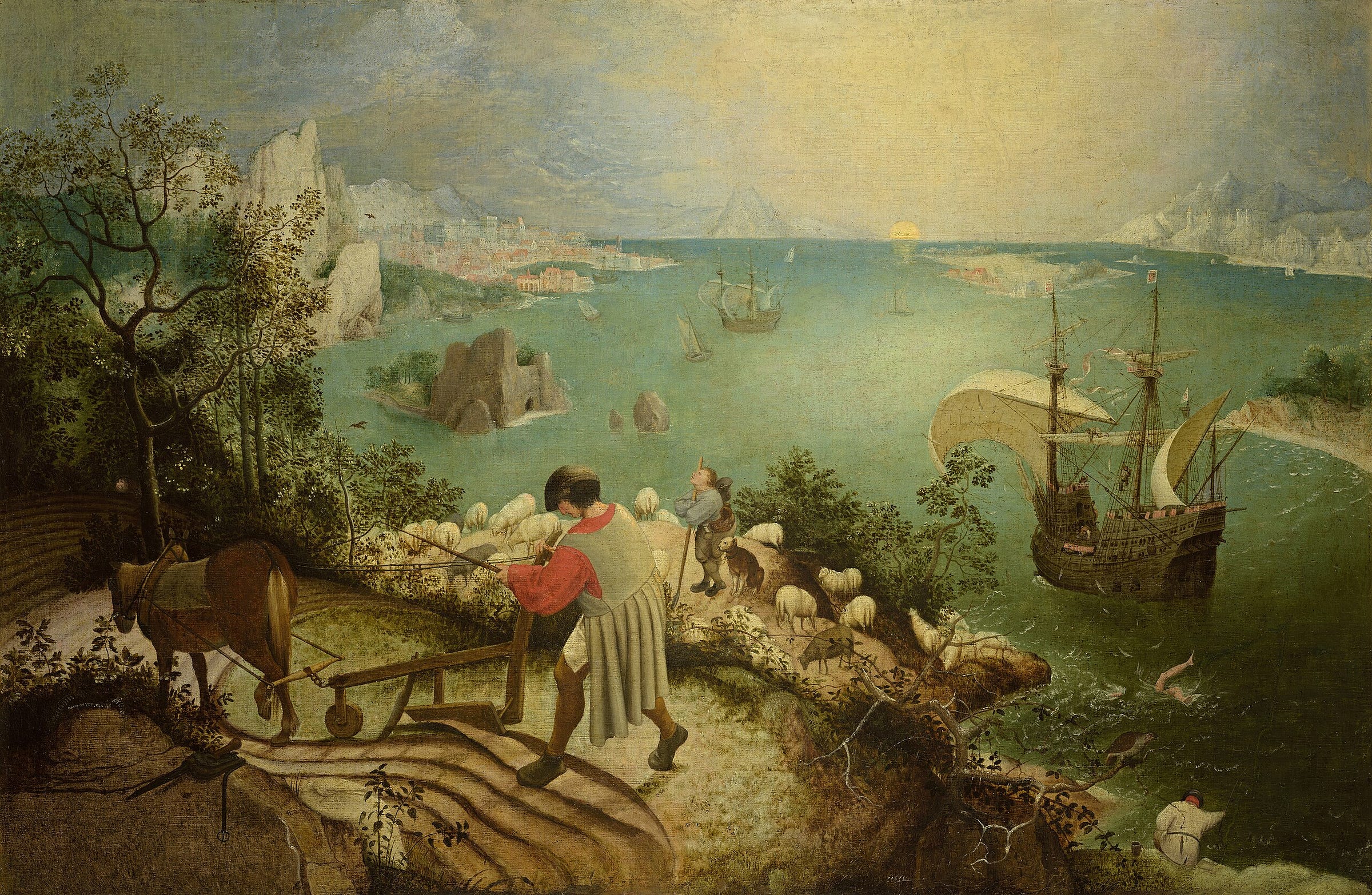
Naturally, Cromwell is more interested in Daedalus than Icarus. Daedalus is the inventor, the craftsman and the architect. He appeals to the blacksmith and builder in Cromwell. And unlike his son, he knew not to fly too high. Daedalus survived. And, of course, he built the labyrinth to contain the minotaur. There are absolutely no prizes for guessing who is Cromwell’s bull-headed monster.
Henry cannot be ready before I am ready: I must restrain my cannibal king.
At Smithfield, Cromwell takes Chapuys up a garden tower made by another builder: Prior William Bolton. Mantel mentions the prior’s rebus, a barrel shot with a crossbow bolt: a pun on his name, Bolton. This lethal martial image winks at Cromwell and Chapuys as they discuss a very delicate matter: how to reconcile the King with his daughter. Both are listening for eavesdroppers:
'No one is there,' he reassures the ambassador. 'It is only Christophe.' Chapuys settles back in his chair. 'Eat up your strawberries,' he tells him. 'Write to Rome.' 'But should one trust this fruit? To eat it raw?' Chapuys frowns. 'Chez-moi, we bake it in tarts.'
In Tudor England, the strawberry was a rare and luxurious fruit, a wild and alluring berry that grew on hillsides and had all the appearance of a miraculous gift from God: its white flowers suggested purity; its red fruit reminded the pious of Christ’s sacrifice. But Chapuys does not know whether to trust it, or the man bearing the gift.
A summer storm is coming. You can feel the static, the heat, the tension rising. Christophe tells him, ‘If lightning strikes you are undone,’ and it is as though we can hear Thomas Wyatt whispering his refrain: Circa Regna Tonat, around the throne, the thunder rolls. Henry is the thunder, but as always, Cromwell ignores the warning.1
As it happens, the threat does not come from heaven. He would not want the world to know he was designing England’s future with the Imperial ambassador. So it is just as well that the shape at the foot of the Tower is only his skittish protege, Thomas Wriothesley, ‘a sheaf of peonies in his hand.’
Further reading:
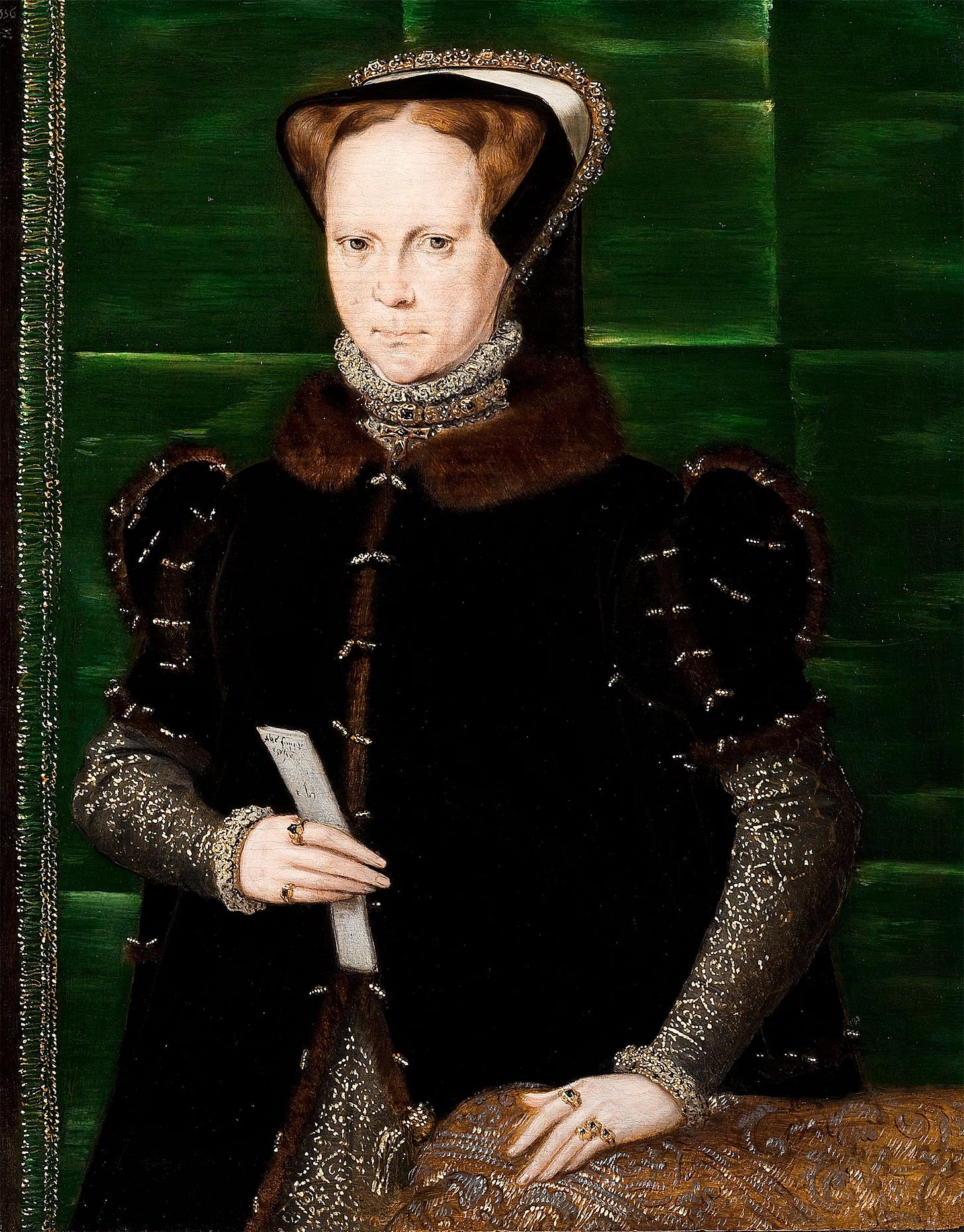
2. Thomas Cromwell and Mary Tudor
Stools play their part in Cromwell’s story. Your place in society determines whether you may sit or must stand as others rest. In Wolf Hall, Cromwell tells the weary Welsh boy in his service to sit and tell him about his own language. In the Tower, he finds Wyatt’s ‘miserable stool’ is still there. ‘Chop it up for firewood,’ says Francis Bryan. ‘Show it who’s master.’ In 1531, Queen Katherine made her sick daughter stand until he, Cromwell, gave her a stool.
The girl’s glance is almost unfocused; she sees him, he supposes, as a bulky mass of shadow, in a space welling with distress.
That was the day the king walked out on them. Henry did not see Katherine again and he has not seen Mary since. Now, Cromwell revisits that memory, and we see something has changed in the remembering:
Then her head jerked up, and she took him in, astonished and grateful. In an instant she had wiped the expression away. It was a transaction so swift that you could barely say it occurred.
This is another example of how The Mirror and the Light reconstructs previous scenes as memory.2 This becomes the mythic origin of a curious relationship between Master Secretary and the king’s daughter. We know of a series of correspondence between Mary and Cromwell and, as we saw last week, a direct appeal to him to intercede with her father.
Cromwell has some very good reasons to be in Mary’s good books. As Francis Bryan observes, Cromwell’s policy is to survive the succession. If Jane Seymour has a son, he is safe. If Henry Fitzroy is named heir, he may have to fight the Howards for control of Henry IX. ‘If Mary survives to reign,’ says Bryan, ‘she will always know that Cromwell saved her life.’
And Mary will reign. Almost three hundred religious dissenters will be executed during her five-year reign, earning her the sobriquet ‘Bloody Mary.’ This dark future is foreshadowed at Hunsdon when she knocks over a jug of red wine. ‘A tide of crimson washes over the white linen… The hem of her skirt has soaked up the claret.’
Cromwell gives her a horse called Douceur. The word means sweetness or gentleness; a good name for a horse. But it can also mean a sweetener or a bribe. The implication is that in return for saving her life, Mary will be sweet, gentle and merciful to this poor heretic when she becomes queen. Ominously, she renames the dapple grey Pomegranate, after her mother’s emblem. He, Cromwell, groans to Rafe Sadler: ‘I should have known it was going too well.’
Further reading:
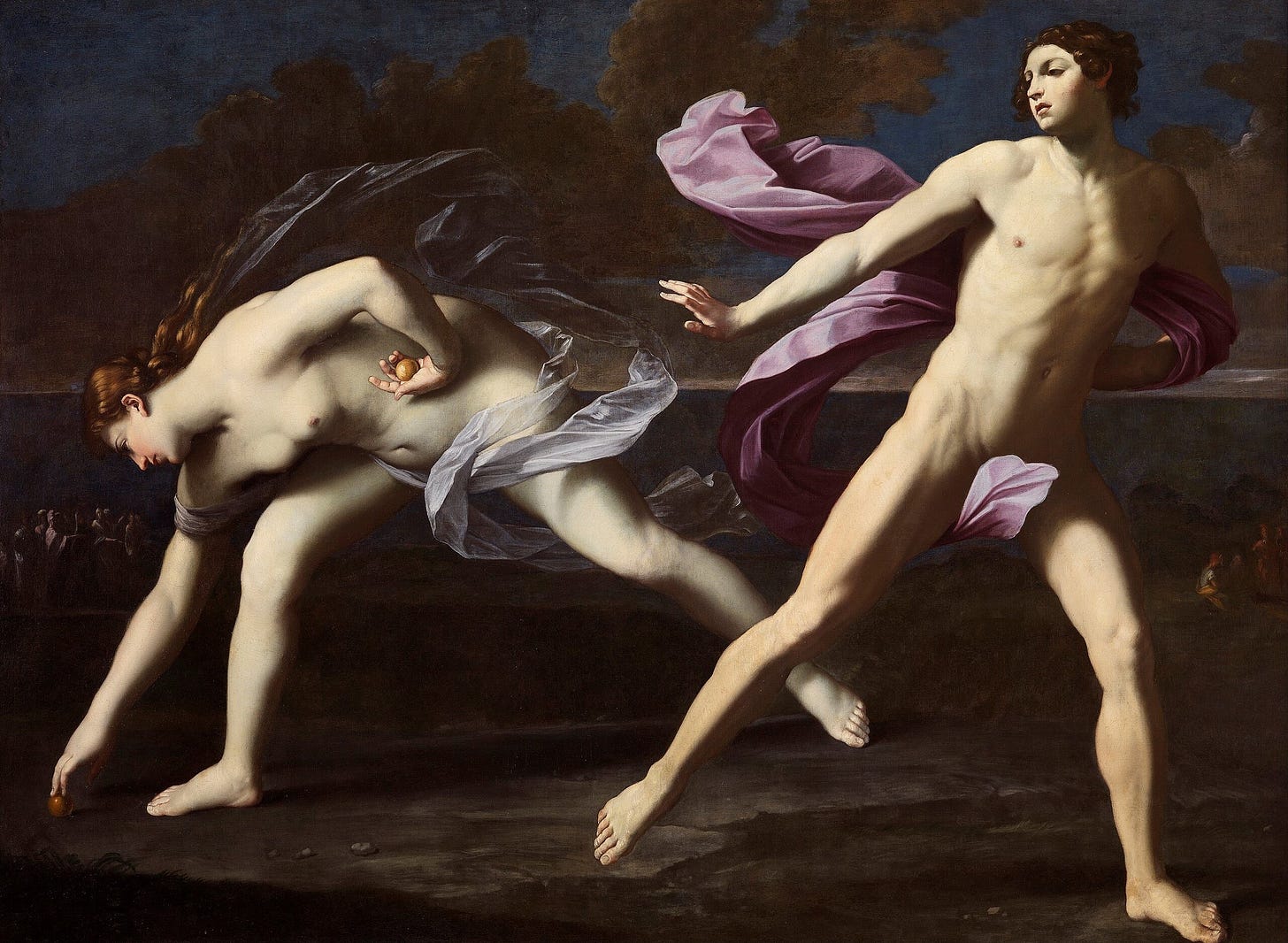
3. Cromwell in Arcadia
‘You did not finish the story, sir. About Atalanta. In the tapestry.’ He thinks, I wish it were some other story.
Drinks at dusk with the Sadlers, Cromwell and his family. This scene is one of my favourites. It combines pagan and Christian garden allusions in a way that evokes a sense of relief, peace and harmony but also disruption and danger: there’s trouble in paradise.
You may remember that we have already visited the house in Hackney where Henry is reconciled with his daughter. In Bring Up the Bodies, Cromwell takes Call-Me with him to interrogate the Earl of Northumberland. He admires the building’s facade covetously and even considers climbing up to check the roof, but he thinks Call-Me would consider it beneath him to hold a ladder. It seems we often find Thomas Wriothesley below us when we climb.
He, Cromwell, now occupies the house on the king’s behalf. In the gallery, Helen asks about the tapestries. They tell the story of Atalanta in Arcadia. Cromwell immediately sees the similarities between the Greek myth and Mary Tudor: a king’s daughter who is left to die because her father wanted a son. Gregory relishes telling the story of how she outran her suitors for marriage:
'Then she was allowed to cut off his head,' Gregory says. 'Which she greatly enjoyed. There were heads bouncing everywhere, you could not go a pace without one rolling out of an olive grove and eyeing you.'
The ‘blameless infant’ became a huntress who delighted in gore. Cromwell considers the story’s conclusion: how Atalanta transformed into a lion. Complacently, he thinks: ‘that’s one worry I don’t have. Daughter into beast, it won’t happen to Henry’s child.’ In 1536, it is difficult to imagine that this sickly but stubborn child of twenty will become as bloody a murderer as her father.
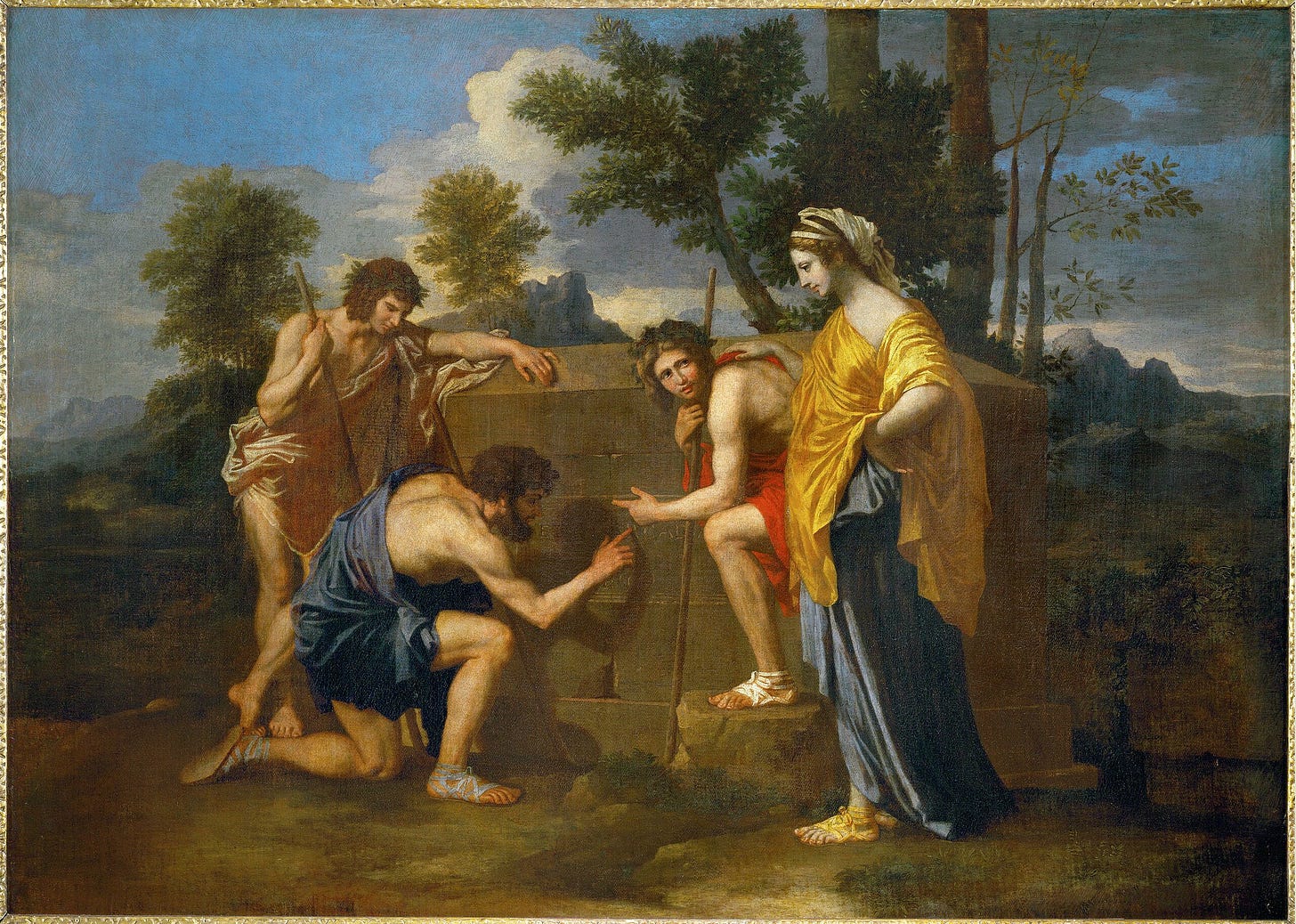
The myth takes place in Arcadia, a mountainous pastoral region of ancient Greece. By the Renaissance, Arcadia had become a poetic byword for a peaceful idyll where one might live in harmony with an abundant natural world. Arcadia was a nostalgic melancholy idea, associated with a lost Eden or an unattainable paradise. In contrast, Utopia is the perfect society that we might build today and tomorrow – if we put our minds to it.
'But here comes Christophe,' Rafe says. 'Et in Arcadia ego.'
Master Sadler is cracking a joke. The phrase ‘Et in Arcadia ego’ means ‘Even in Arcadia, there I am,’ and refers to a tomb inscription described by the Roman poet Virgil. It is a memento mori: death existed, even in paradise. Cromwell will have also come across this idea in Arcadia (1504) by the Italian poet Jacopo Sannazaro.
Rafe jokes that even in paradise, there are men like Christophe. And he, Cromwell, follows this by saying, ‘Et in Arcadia’, there was money and greed: Atalanta ‘was not insensible to the value of money.’
The phrase ‘Et in Arcadia ego’ will be popularised in the next century by the artists, Nicolas Poussin and Guercino. Tonight, the refrain makes us uneasy. Our heroes are happy, but there is something fearful out there, and the light will not last:
Their voices are a murmur. They recede. The light falters. Nesting birds rustle under the eaves. Vespers are sung and Compline, the offices of night. The dew is cold in the grass. Shutters are closed against the exhalations from meres and ponds.

4. Cromwell in Gethsemane
Superimposed onto Arcadia is another garden:
Rafe's goblets are decorated with pictures of Christ's disciples. 'I hope it is not the Last Supper,' Rafe says. 'Here, sir. This one for you.' He recognises St Matthew, the tax-gatherer. He raises the saint and offers them the Tuscan merchants' toast: 'In the name of God and of profit.'
According to the four Gospels, Gethsemane was the garden where Jesus Christ shared his final meal with his disciples before his arrest and trial. Like Arcadia, it is a place that is both comforting and troubling. One of the disciples in this peaceful garden will betray Christ to the authorities. So, are we to wonder in the Hackney half-light: Richard, Gregory, Call-Me, Riche… which one of you is our Judas Iscariot?
Cromwell drinks from St Matthew, the tax-gatherer. It is an appropriate Apostle for the Putney boy making a fine profit from his many government offices. And it just happens that in Christian art, Matthew is accompanied by an angel, or winged man. ‘Ladders? I have wings.’
I wonder what you make of Richard Riche, raising St Luke to Cromwell. ‘To your success, sir.’
Luke the Evangelist has been praised for the historical accuracy of those books attributed to him in the New Testament. He was also celebrated as the first painter of icons. However, Helen notes that the goblet is chipped. ‘Richard Riche must have gnawed him.’ Luke’s authorship of the Gospel of Luke and the Acts of the Apostles is contested by Biblical scholars. Richard Riche was an unreliable witness of events, suspected of falsifying the evidence that brought Thomas More to the scaffold.
Yes, I wouldn’t trust Richard Riche with my goblets, let alone with my life.
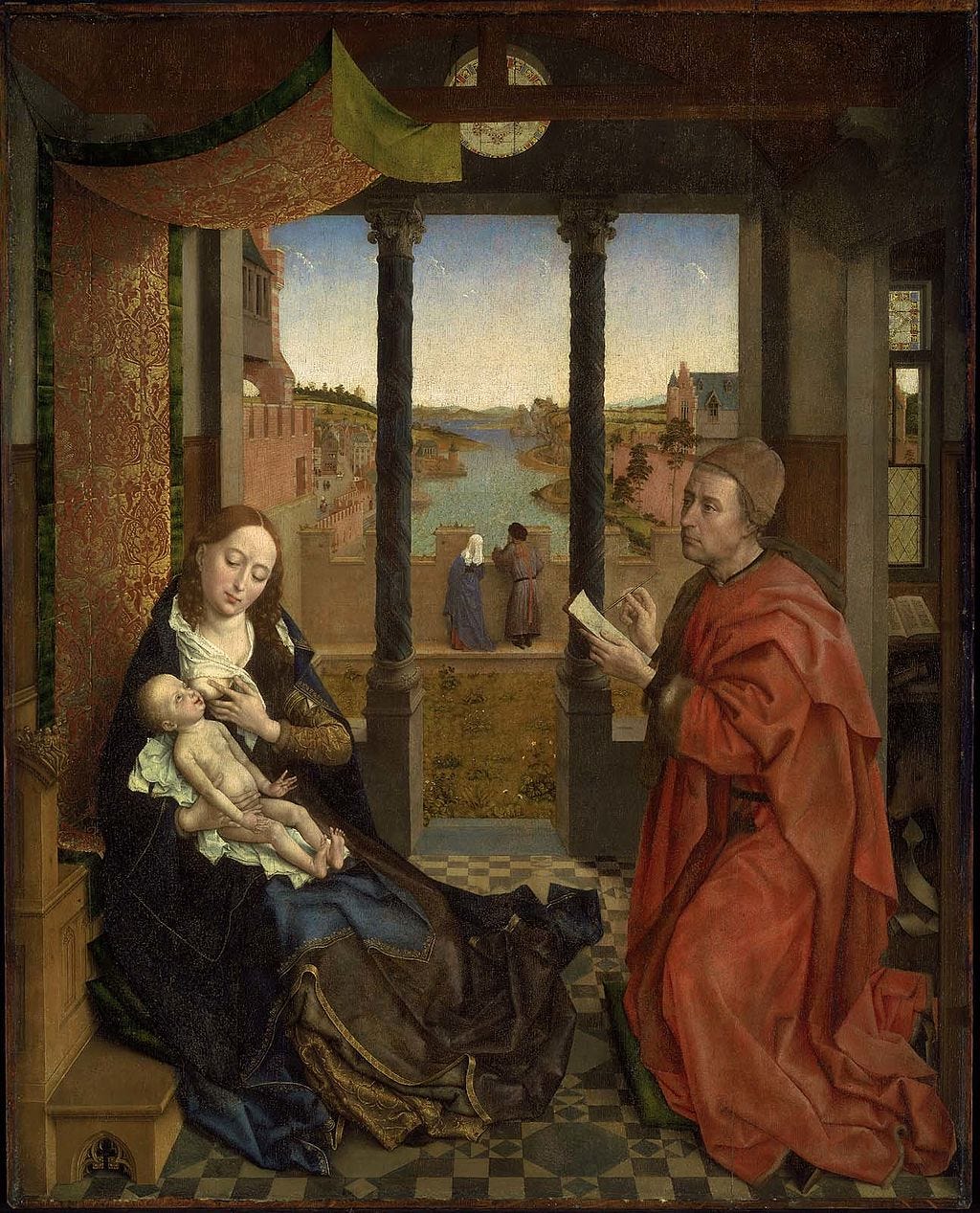
Quote of the week: The deep interior
What is the task of the historical novelist? Cromwell considers Mantel’s trade:
When the chronicles of the reign are composed, by our grandchildren or by those in another country, distant from these fading fields and glow-worm light, they will reimagine the meeting between the king and his daughter – the orations they made each other, the mutual courtesies, the promises, the blessings.
That is the job of chroniclers and historians. Novelists must write down what was not witnessed or what was left out of the record. ‘The Lady Mary’s wobbling courtesy, or how the king’s face flushes as he crossed the room and sweeps her up.’ The deep interiors of lives, moments and lands, a long time ago.
The novelist’s pen has more in common with the painter’s eye. Their interests and techniques are similar. As the ploughman in Bruegel’s painting is oblivious to Icarus falling, so the novelist lets her characters live their lives wild on the page. And a writer is permitted to remove walls and pry into the private spaces where men hide their deepest fears and desires:
Perhaps you have seen, in Italy, a painting of a house with one wall removed? The painter does this to show the deep interior of a room, where at a prie-dieu a virgin kneels, surrounded by bowls of ripening fruits. Her expression is private and reserved; she has kicked off her shoes and she is waiting to be filled with grace. Already you can see the angel hovering above the rooftops, a blur of gold on the skyline, while below in the street the people go about their business, and some of them glance upward, as if attracted by a quickening in the air. In the next street, through an archway, down a flight of steps, a housewife is hanging out washing, and someone is rising from the dead. White pelicans sit on rooftops, waiting for Christ’s imminence to be pronounced. A mitred bishop strolls through the piazza, a peacock perches on a balcony among potted plants, and striated clouds like bales of silk roll above the city: that city which itself, in miniature form, is presented on a plat for the viewer, its inverse form dimly glowing in the silver surface: its spires and battlements, its gardens and bell towers.
I believe Cromwell, and Mantel, are thinking of The Annunciation, with Saint Emidius by Carlo Crivelli. This richly beautiful altarpiece is a fitting finish to the extraordinary piece of writing that is ‘Salvage, London, Summer 1536’.
We have so much more to come.
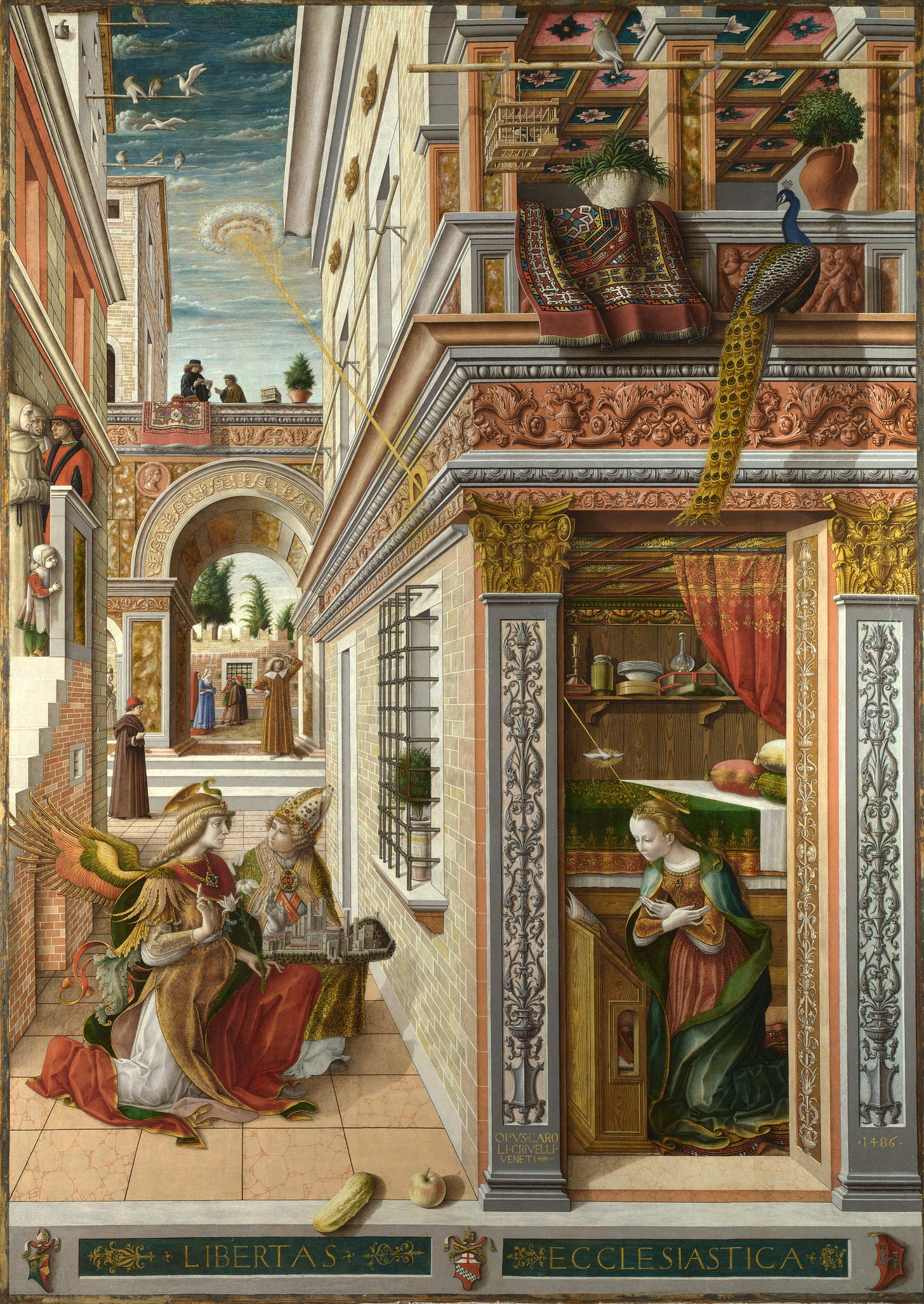
The Haunting of Wolf Hall
And for paying subscribers, here is my piece picking up on the phantasmal themes in this week’s reading:
Next week
Thank you for reading and joining me on this slow read of the Cromwell trilogy. Next week, we are reading the first half of ‘Wreckage (II), London, Summer 1536’ This runs from page 167 to 209 in the Fourth Estate paperback edition. It begins: “Do you know why they say, ‘There’s no smoke without fire?’” It ends: ‘You must learn to use my title, madam.’
And before I go, a quick reminder that this book group is entirely funded by its readers. So, if you have enjoyed this post and found it helpful, please consider a paid subscription to access the bonus episodes on The Haunting of Wolf Hall and start your own discussion threads in the chat area.
Alternatively, you can show your support with a one-off contribution by leaving me a tip over on Stripe. These always make my day and remind me that this project is worthwhile and finding a good home.
Until next week, I am your guide,
Master Simon Haisell
Chapuys and Cromwell climb the tower together. ‘You are going to live for ever, of course,’ Chapuys says. ‘Always climbing.’
Another example comes later in the chapter. Cromwell recalls that at Kimbolton, Katherine asked him whether he ever confesses. In Bring Up the Bodies (Crows) he tells Katherine, ‘God knows our hearts, madam.’ Now, he cannot remember what he said. ‘Perhaps he said he would confess if ever he was sorry, which mostly he wasn’t.’ In Bring Up the Bodies, the interview ends there. Now he remembers that Katherine asked for ‘a moment’ in which he makes the silent promise to protect Mary.




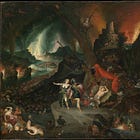
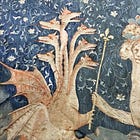

Great post. And thanks for posting that last painting. I was wondering which one it might be.
I think this section may have my favorite scenes of the 3 books. I remember reading the tower scene the first time and it struck me just as much this time. Same with the family gathering in the garden. There's so much woven into both of those scenes. I appreciate the pieces you pulled out for us.
"He makes his first draft; it is hard for him, to become the king's daughter." This line and the whole writing scene was so real I could hear all Mantel's experience as a writer, the input from other's, the effort to not write as oneself -- which in the end is not possible.
And Gregory, always there with the dubious compliments.